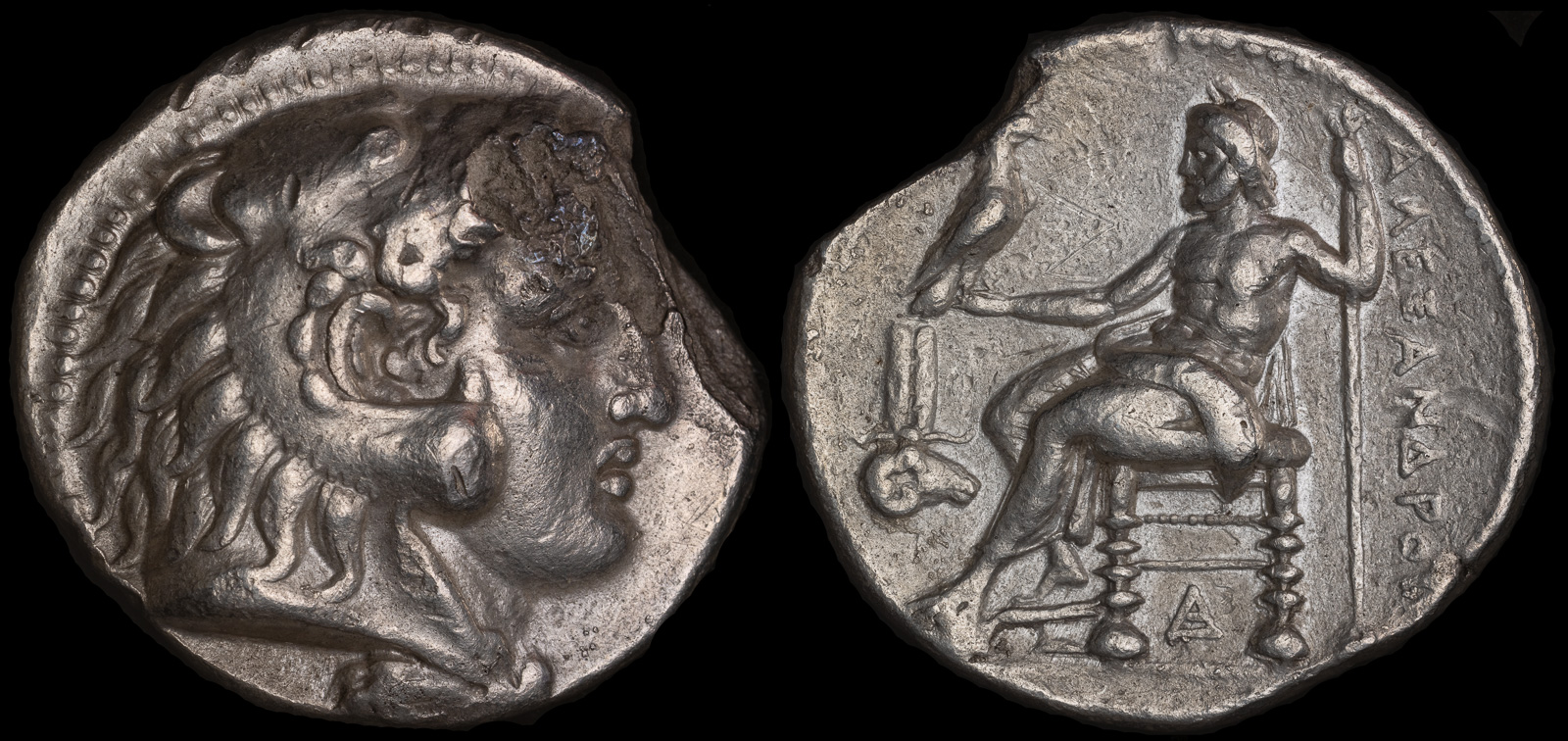
with name and types of Alexander III
Memphis, c. 323/2 BCE
AR Tetradrachm, 16.09g
bv: Head of young Herakles r. wearing lionskin headdress.
Rx: AΛEΞANΔPoY Zeus seated l. holding eagle and scepter, in l. field, head of Amun-Ra (as ram) r., wearing double-plume crown, monogram under throne
CPE-4, Price-3964
Ex NFA
When Alexander the Great rolled into Egypt in 331 BCE, he was unopposed. The majority of the Persian army in Egypt had been defeated at the Battle of Granicus in 334 BCE, and the satrap Sabakes had died with them. The new satrap, Mazakes, wisely chose to avoid bloodshed and opened the gates to Alexander.
Alexander spent some time in Egypt and did some tourism, but the actions we’re most interested in are the following.
He installed a new satrap, Kleomenes of Naukratis. It’s generally believed that Mazakes was reassigned to a satrapy in Mesopatamia. Note that there’s some debate over whether Kleomenes was actually satrap, but what is not disputed is he held the power in Egypt.
He began construction of a new city named Alexandria.
He then left for more merry adventures in Baktria and India. Meanwhile, Kleomenes proceeded to write the handbook and corruption. He stole money in a vast number of ways including export duties, price manipulation, and outright bribery. One famous example involved his son, who was supposedly eaten by a crocodile. Kleomenes ordered all the crocodiles killed, which was an issue back then since they were sacred animals. The priests collected whatever they could in order to save the animals, and Kleomenes then took all of that money and decided against killing the reptiles.
During Alexander‘s lifetime, he was informed of all the ills of Kleomenes, but he preferred to conquer rather than rule. However, when Hephaistion died, Alexander offered Kleomenes a deal that we assume he was smart enough to not refuse: build a grand monument to Hephaistion and Alexander would forgive any past offenses.
Unluckily for Kleomenes, Alexander died shortly after Hephaistion and Ptolemy was assigned the satrapy of Egypt (again, it’s uncertain whether Ptolemy was actually satrap or another powerful position). Aware that he could not coexist with Kleomenes, Ptolemy had him executed.